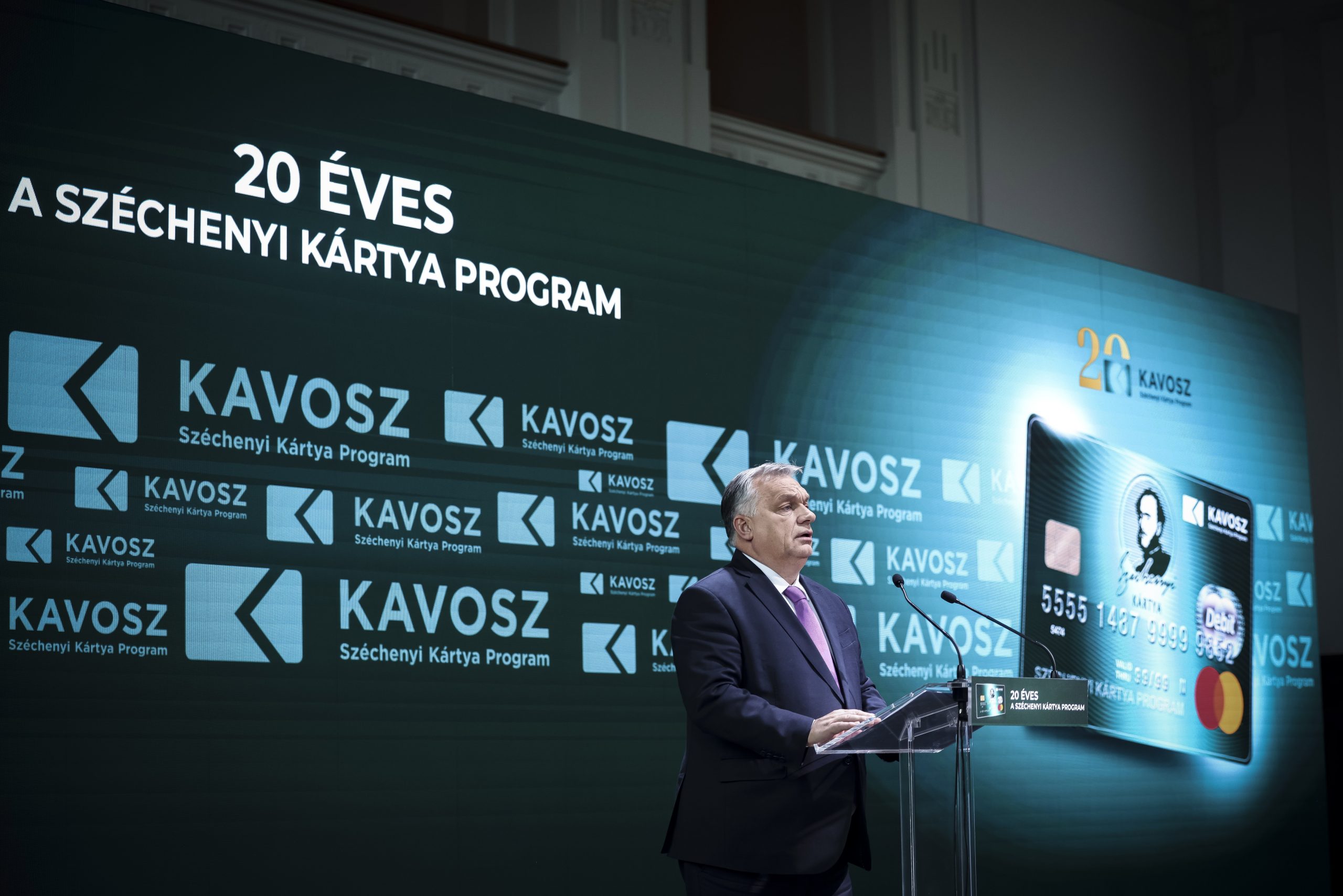
We have fulfilled everything that we have pledged to do, Viktor Orbán emphasized.Continue reading

Hungarian Prime Minister Viktor Orbán delivered a speech at a ceremony to mark the 20th anniversary of the Széchenyi Card Program in Budapest on Tuesday. He stressed that it had been decided to more than double this support. Next year, the program will receive 290 billion forints (EUR 710 million) from the budget, up from 130 billion forints (EUR 318 million) this year.
For 20 years, the Hungarian government has been providing financial solutions for businesses through the Széchenyi Card Program, tailored to their financing needs. The program offers various loans for investment and operational financing, as well as leasing. Since its launch in 2002, the Széchenyi Card Program has received 559,000 loan applications and has concluded nearly 390,000 loan transactions, providing Hungarian SMEs with access to more than HUF 4,600 billion (EUR 11.2 billion) in preferential financing.
At the ceremony, Viktor Orbán said that the government is not doubling the support “out of good will, as interest rates have risen” and so interest subsidies have increased, but everyone knows that “we are facing a difficult year,” so the decision could have been made not to invest so much money in the scheme. He added that another 220 billion forints (EUR 538.5 million) will be given to small and medium-sized enterprises that fall into the energy-intensive category, and a factory-saving program will be announced.
He said that
large foreign investments target cities and that Hungary cannot succeed without large foreign investments. But they must be accompanied by successful Hungarian businesses, because then Hungary will be a Hungarian country.
He added that alongside large foreign companies there must always be a broad, strong, and stable Hungarian entrepreneurial layer.
The prime minister has remarked that there is pleasure in staying out of recession and staying out of the war. He added:
We should also be pleased that we can target single-digit inflation by the end of 2023.”
He also said that he did not believe that the market was sacrosanct, that it had its laws, but that it was not untouchable and it could do with state intervention. We are facing a year when the Hungarian economy will not succeed without a strong, timely and correctly acting state, he pointed out.
Prime Minister Orbán stressed that although the 2023 budget has already been adopted, developments have taken place since then, so it needs to be adapted to the current situation.
We cannot rely on anyone else, we must find our own lifeboat, a lifeboat that can both protect the population and maintain the viability of Hungarian companies,”
he explained.
Energy is the most difficult challenge, he said, because under today’s changed utility subsidy system, the Hungarian budget gives each household 180,000 forints (EUR 440) every month, because if it did not, every Hungarian family would have a higher energy bill. It is important to preserve this subsidy, he said.
Featured photo via MTI/Miniszterelnöki Sajtóiroda/Fischer Zoltán